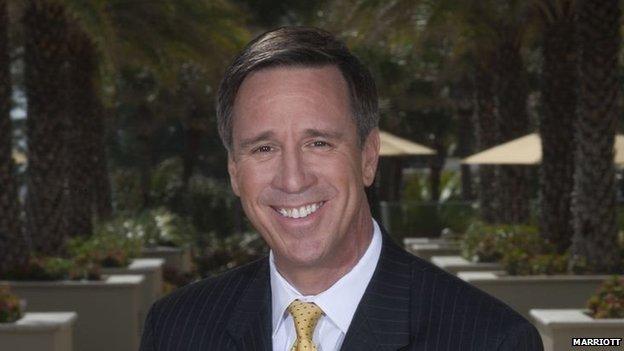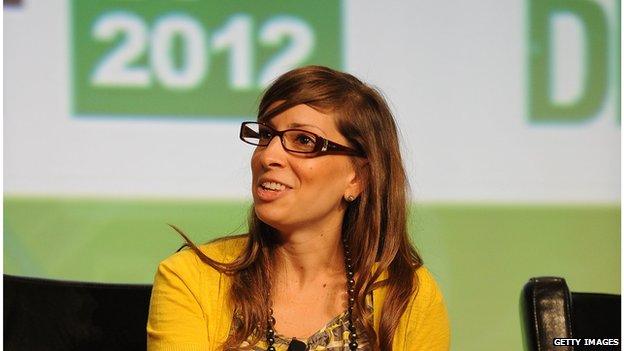What makes a good business leader?
- Published

Humility, doubt and the ability to make mistakes.
These are some of the answers I'm given to the question of what makes a good chief executive.
Since the World Economic Forum is full of them (good, bad and ugly), I reckon it's a good place to ask.
"Don't believe your own brilliance" says Arne Sorenson, chief executive of Marriot Hotels and the first non-Marriott to be entrusted with leading the company in its 88-year history.
"You need to be curious and you need to be doing more listening than talking."
"It's possible to glorify the position of CEO… it's important that they should not be the only one making the decisions. Nobody is that brilliant."
Authenticity
You need a certain amount of rebellion within the team, he says in a crushed corner of the congress centre in Davos. And if you don't, you're doomed.
He also mentions the need to be authentic. Surprising, perhaps - but apparently he's not alone in thinking that's important.
Tim Morris, professor of management studies at Oxford University, was part of a team that carried out a study into the expectations of today's CEO.
They interviewed more than 150 chief executives about their job and although they had specifically avoided the word authentic, because they thought of it as too much of a buzz-word, it kept being brought up by the bosses themselves.
"It's clearly important to them," says Prof Morris.

You need a certain amount of rebellion within the team says Mr Sorenson
"Chief executives feel that they can't get people behind them unless they're authentic."
"The traditional way of thinking about the good leader would be that they deliver for the shareholder and they survive because they deliver profits and keep people happy.
"But, for the people we interviewed, the job of chief executive was much more complicated than that."
But, I'm wondering, isn't it authentic to deliver profits? Isn't that what the job of CEO is?
Apparently not any more.
According to Oxford University's research, chief executives nowadays feel that they have to be more approachable, engaged, and caring. Or, as one described it, the Chief Emotional Officer.
Self awareness
And Prof Morris believes there won't be a return to the 'old-style' chief executive.
Leah Busque is relatively new to the business of being the boss. In 2008, she went from being a software engineer at IBM to setting up and running the company TaskRabbit.
New to the UK, the American website helps people find someone in their area to do a job for them, and now has about 50 employees.
She says she didn't have or need any training in leadership, but that she thinks the key is that she is self-aware enough to know when to bring in other people to fill in the gaps in her knowledge.
And it sounds like she's feeling the pressure to be more human.

"Showing vulnerability sometimes as a CEO is not a bad thing, but it's not always easy… CEOs don't like to be vulnerable, and show their weaknesses. Actually for me, it's something I have to really think about and really force myself to do."
Establishing exactly how you do that is tricky. It's possible to try too hard.
"The worst thing you can do is go on an authenticity course", says Prof Morris.
"You need to be consistent with your values, your purpose, with what you want to do and why."
Prof Morris says the power of social media means that it's impossible to switch off and dealing with that required much more subtlety than in the past.
'Shut the door'
He says there's a feeling among the chief executives they interviewed that as soon as they wake up they're aware of their responsibility.
"You can't just say sorry that's not my problem, I'll deal with it on Monday morning. There's a sense that it's all-consuming."
But he said a trait many of the executives had was an ability to shut the door on a decision after having made it.
The other factor that the CEO report highlights is how there is increasingly a global standard to the job. The answers and expectations in Japan and Korea, were not significantly different to those in the US or Europe.
And indeed the clearest answer I got on what makes a good chief executive came from Sim Tshabalala, Co-CEO of Standard Bank, one of Africa's largest.
"It's about knowing your industry but having the ability to lead people who know more than you," he says.